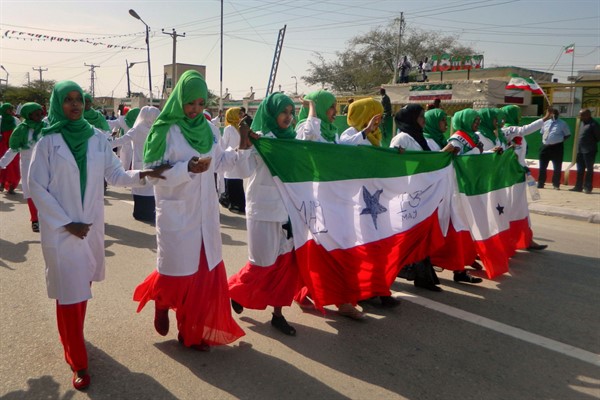On May 18, the people of Somaliland celebrated the 30th anniversary of their decision to unilaterally declare independence. Like the 29 such occasions before it, the jubilant fanfare was tempered by a cloud of formal diplomatic exclusion. The government of this self-ruling republic in the Horn of Africa has yet to be recognized by any United Nations member state, despite offering functional, peaceful and inclusive leadership to its citizens.
However, this time feels different. While Somaliland’s final status remains in limbo given its existence within the internationally recognized territory of Somalia, geopolitical conditions have changed, opening up unprecedented political and economic opportunities. As great power competition heats up between the United States, China and Russia, and as the Gulf Arab states race to outmaneuver rivals like Turkey and Iran for influence in East Africa, Somaliland’s strategic location—with its 860 kilometers of coastline along the Gulf of Aden—is beginning to seem like a bigger prize than the traditional Somali center of gravity, Mogadishu.
At the same time, international patience with the state-building mission in Somalia is wearing thin. Fourteen years after African Union troops embarked on the latest attempt to move Somalia beyond permanent “statelessness,” and nearly one decade after the international community recognized a Mogadishu-based government, Somalia has hardly made progress on finalizing a constitution, institutionalizing popular elections and assuming control over its own security. Instead, its signature achievement—the formation of federal member states—has failed in its three main objectives: It has neither prevented authoritarian tendencies from reemerging from the center, nor depoliticized interclan competition, nor facilitated the settlement of substantial power- and resource-sharing arrangements.

